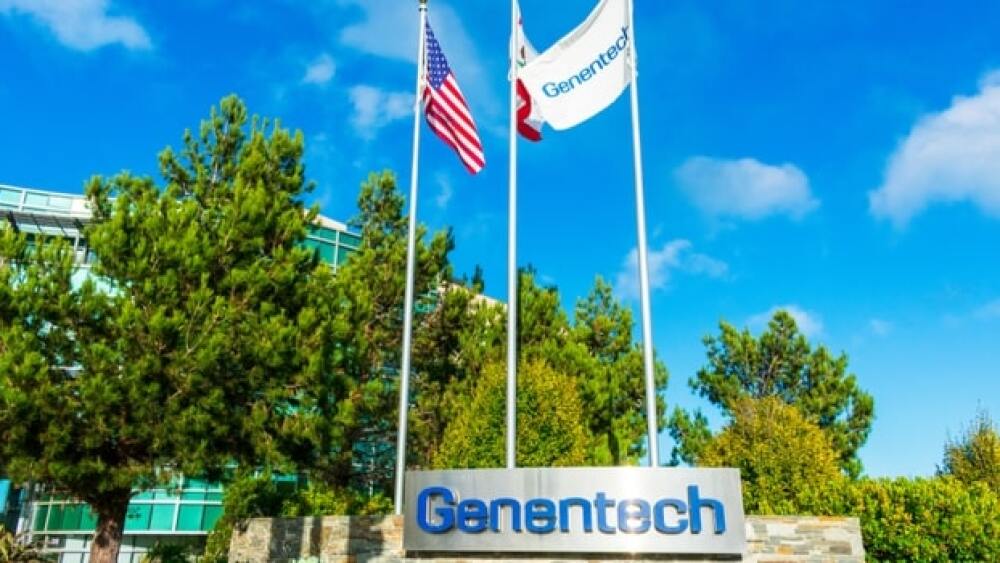Genentech’s Hemlibra showed no new safety signals and continued to deliver consistent bleeding control in the final analysis of a long-term, late-stage hemophilia A study.
Michael Vi/Shutterstock
Genentech’s Hemlibra® (emicizumab-kxwh) showed no new safety signals and continued to deliver consistent bleeding control in the final analysis of a long-term, late-stage hemophilia A study.
Hemlibra, a bispecific factor IXa- and factor X-directed antibody, is approved in more than 100 countries to treat hemophilia A with factor VIII inhibitors. Individuals with hemophilia A who develop factor VIII inhibitors have an increased risk of more frequent bleeding and have greater day-to-day challenges than patients with hemophilia without factor VIII inhibitors. The drug is also approved in over 80 countries for hemophilia A without factor VIII inhibitors.
Researchers performed a final analysis of the Phase IIIb STASEY study, which included 193 patients with hemophilia A with factor VIII inhibitors who were treated with prophylactic once-weekly Hemlibra for up to two years. Overall, the median duration of treatment was 103.1 weeks.
In the analysis, there were no new cases of thrombotic microangiopathy or serious thrombotic events associated with the study drug. The most frequent adverse events (AEs) which occurred in 10 percent or more study participants included joint pain (17.1 percent), common cold symptoms (15.5 percent), headache (15.0 percent), injection site reaction (11.4 percent), and fever (pyrexia; 10.9 percent). Approximately 35 percent of patients experienced a drug-related AE, the most common being injection site reactions (9.8 percent).
Only 5.2 percent (n=10) of participants were positive for anti-drug antibodies (ADAs), suggesting Hemlibra is associated with a low incidence of ADA development. A total of five of the patients positive for ADAs had neutralizing ADAs in vitro. The development of ADAs in the 10 participants demonstrated no effect on the efficacy or safety of the study drug. The ADAs all dissipated over time, with all participants testing negative at the last study visit.
Treatment with Hemlibra over the long-term follow-up also effectively controlled bleeding – approximately 82.6 percent of patients had no bleeding episodes over the treatment period that required management. According to a statement made by the company, the annual bleeding rates were consistent with those reported in the pivotal HAVEN trials.
“As the treatment landscape evolves, determining the long-term benefit/risk profile of medicines for people living with hemophilia A remains a top priority for the community,” said Genentech’s Chief Medical Officer and Head of Global Product Development, Levi Garraway, M.D., Ph.D. “These results provide further confidence in Hemlibra’s favorable safety profile in people with hemophilia A with factor VIII inhibitors, who have historically faced significant treatment challenges.”
The positive study findings come soon after the recent indictment of prior Genentech staffers who recently pleaded guilty to orchestrating the theft of trade secrets. The U.S. government also charged the former Chief Executive Officer and Chief Operating Officer with wire fraud and money laundering exceeding $101 million. These indictments follow similar charges three years ago against former company employees who allegedly stole trade secrets from Roche subsidiary to establish JHL Biotech.
In the most recent controversy, former Genentech principal scientist Xanthe Lam and husband Allen Lam pleaded guilty to orchestrating the theft of trade secrets from the subsidiary to assist competitors. The former company employees reportedly stole confidential intellectual property related to cancer drugs Avastin, Herceptin and Rituxan, in addition to cystic fibrosis drug Pulmozyme.





